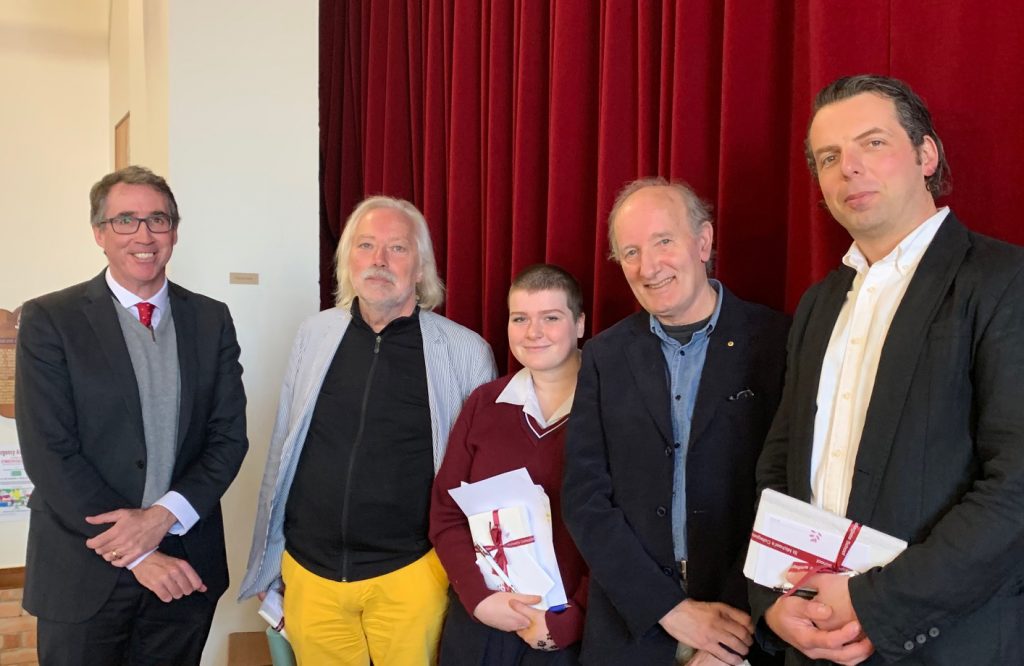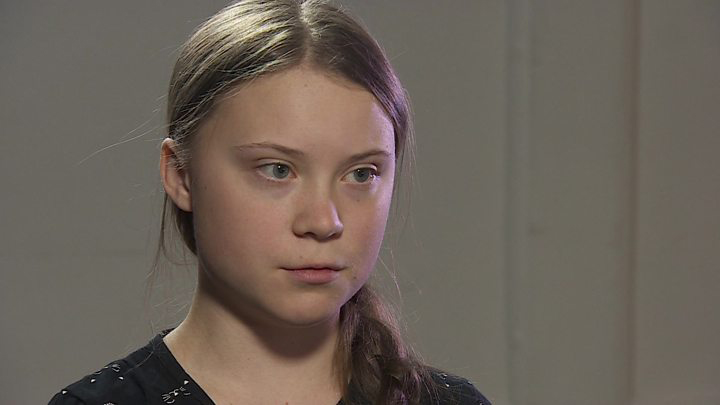The climate debate is stepping up a notch, and schoolchildren are leading the way

Many years ago, St Michael’s Collegiate had a reputation among state-educated kids like me as the school where the daughters of Hobart’s establishment learned to become good wives and mothers.
If that was ever true, it is no longer. Sitting down in front of hundreds of students in Collegiate’s main hall last week left me in no doubt that they will chart their own course in life regardless of what others might expect.
Also on the stage in a school climate forum were Collegiate principle Adam Forsyth, senior student Sahara Fitzpatrick, Gustaaf Hallegraeff, a marine algae specialist at the Institute of Marine and Antarctic Studies, and Tom Allen of the Wilderness Society.
We told them about ourselves and what we thought about climate change, and then we heard from them. Their informed, considered questions were what you would expect from anyone who had taken the trouble to immerse themselves in the science and psychology around climate change.
This is the thing: while politicians treat climate change like a deadly disease to be avoided at all cost, young people and their teachers are moving in the opposite direction, increasingly attuned to its implications for their future, prepared to ask hard questions and to face it head-on.
It has taken me a while to come to grips with this, with all that we hear about the mental stresses in being young today. It’s often said young people need to have hope, to know that there are solutions to the climate crisis, that warming can be stopped and we will find a way.
My problem with that is that it glosses over the uncertainties reflected in the science and ignores the growing gap between political assurances and what science is observing: higher levels of atmospheric carbon, higher average temperatures, vanishing ice, extreme weather.
Steadily rising global warming is of overwhelming importance to today’s school students. It should never be hidden from them, or presented as something they need not be bothered by. They have to know what they will be dealing with in their adult life.
What’s more, they see through the deception. They and their teachers can hear the professionals’ accounts of what’s happening around us now. They read about the physical evidence and view it on video. Whatever their elders say, they know things are not as they should be.
Greta Thunberg is the Swedish schoolgirl who has given voice to their frustration. As a 15-year-old last year she shot to prominence with her one-person “school strike for climate” outside the Swedish parliament. She is now a global celebrity who has audiences with the rich and powerful.

Last week we heard that Thunberg is skipping six months of school (the absence is authorised and she will make up the time next year) to visit North and South America. Among many engagements she will attend two international climate meetings in New York and Santiago, Chile.
Thunberg refuses to use an aircraft or a cruise ship because of their carbon footprint. No problem: a German businessman offered her an emissions-free Atlantic crossing aboard his high-tech yacht powered by wind, sun and the motion of seawater. So she’s going.
Well-read, intelligent, brutally honest, deadly serious, and most of all young, Thunberg is a hard target for critics. They have said that her reasoning is affected by her mental state (she has been diagnosed with Asperger syndrome) and that adults have used her for their own purposes.
Thunberg’s public appearances – videos are easily found on Google – are remarkable: direct, simple, clear, with a power that can only come from a serious, deeply personal investment in the future. If her Asperger’s affects her reasoning, it can only have enhanced it.
The charge that she’s being used by adults is laughable. As the videos show, no-one tells her what to think. Implying she should be shielded from climate debate is a throwback to when young people and women had to be kept away from sex, crime and politics because it might damage their minds.
There are many like Thunberg in our own cities and schools, leading their generation’s battle to be heard. I heard those voices in Hobart’s school strike in March, and at Collegiate last week. Thunberg is the tip of a huge iceberg.
The opinion-makers opposed to climate change action know this. They understand the potential of the Thunberg phenomenon to draw new players into the debate and persuade legislators and other leaders to shift ground and do what they should have been doing all along.
Let’s not get ahead of ourselves. High-octane developed economies in the 50 years after World War II – my generation – fuelled the climate crisis, and can’t be let off the hook. But to the young people who bring their much-needed commitment and passion to our table, I say thank you.
